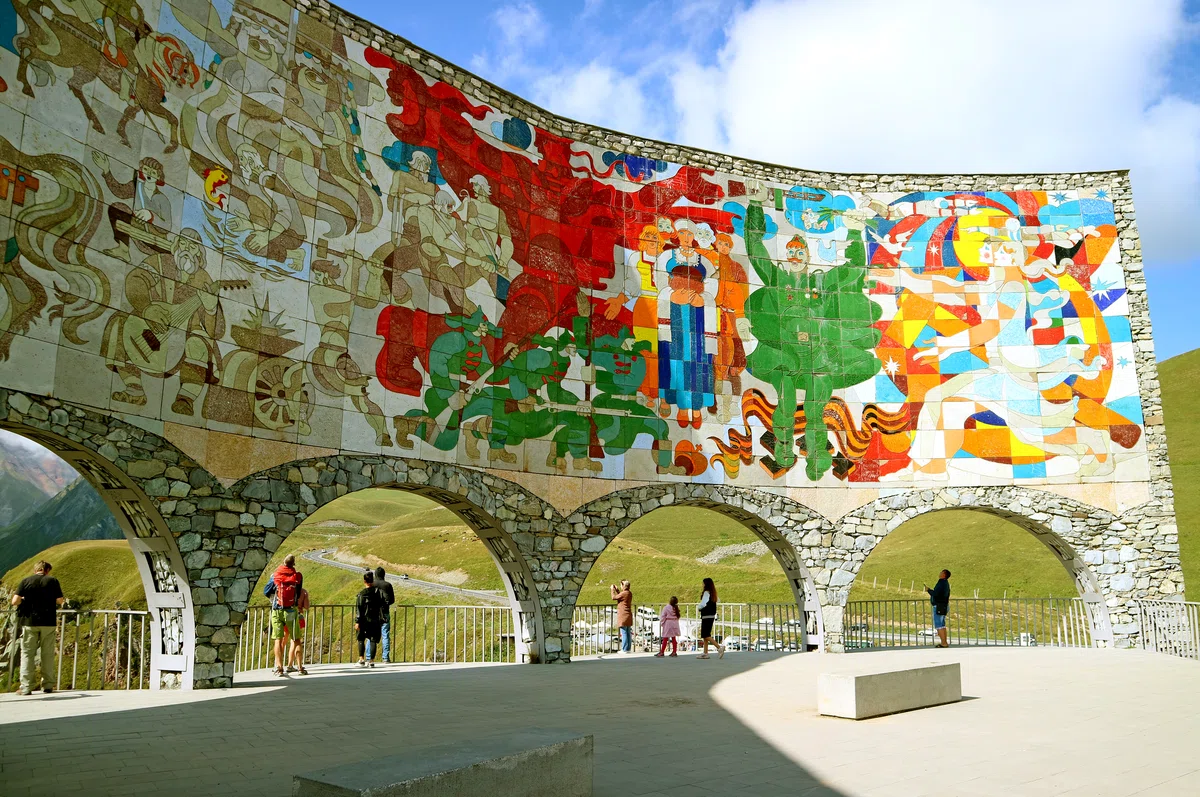
The history of the Georgian state: the origin of the country's name. The peoples of Georgia, their history, character and language.
Features of the peoples of Georgia. In total, there are 3 main sub-ethnic groups living with their own languages, and about 4.2 million people speak modern Georgian in the world. You can read about inaccuracies in the history of the formation of an ethnic group on our madloba website.
About Georgia and the Georgian people⬇️
History of the Georgian State it begins more than 3000 years ago. The name of the country changed, territorial changes took place. For many years of development, a peculiar civilization has been formed on the territory of present—day Georgia - the Georgian people.
The territory where Georgia is located is unique and unrepeatable. It is not for nothing that there is a legend that God, in gratitude for honesty and for an invitation to a holiday in honor of the creation of the world, gave Georgians a small beautiful piece of Land on the Black Sea coast, which he kept for himself.
History of the State
The first community of the Georgian tribes of the Diaokha arose in Transcaucasia about four thousand years ago. According to historians, the birth of Georgia began with this ancient union. In various sources, these lands were called Colchis, Lazsky, Western Georgian kingdom.
The Kartli Kingdom or Caucasian Iberia was formed in the eastern territories of historical Georgia in the IV century BC. Decisive for the formation of Georgian statehood was the strengthening of Iberia (Iberia), the unification of the Megrelian tribes living in the Colchian Kingdom in the western part of present-day Georgia.
In the VI-X centuries, it is almost completed formation of the Georgian state:
- the historical territory is being fixed;
- centralized power is being strengthened;
- a common culture is being formed;
- The Georgian language is spreading, it is becoming the main language for all tribes and nationalities;
- a single nation is being formed.
Origin of the name
There are several versions of the origin of the country 's name:
Sakartvelo — the country of Kartvels or Kartli;
the name is associated with the name of St. George, he is the most popular in Georgia, in the Middle Ages there were 365 on the territory of the country churches of St. George;
- the Arabic-Persian version of the origin of the name: from the word "gorg" — wolf, he was depicted on the helmet of Vakhtang Gorgasal. The country of wolves is Gurdzhistan, then the transformation of the word takes place — Gurdjan, Gurzan, Georgia.
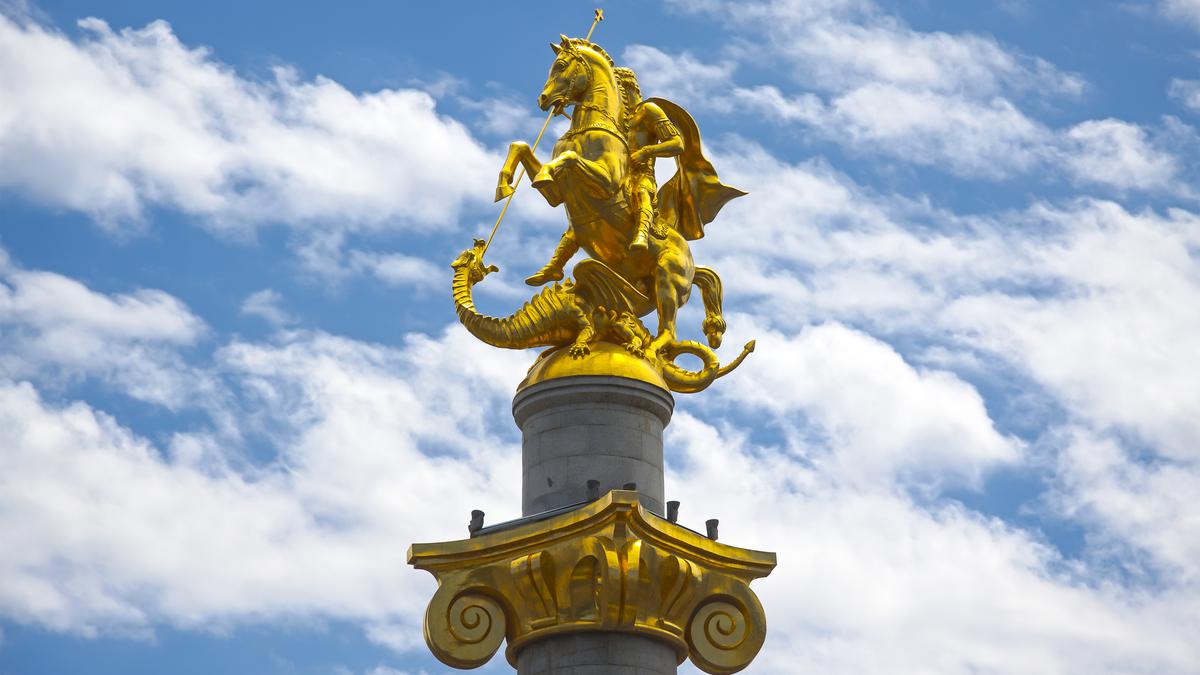
Formation of the Georgian ethnic group
Historically, the Georgian nationality began to form back in the I century AD. There is still no unambiguous opinion about its origin. Modern scientists rely on the evidence of ancient historians, but they are not always reliable.
The unified Georgian people began to unite on the territory of Western and Eastern Georgia. Historians identify three main reasons that had a significant impact on the formation of Georgian statehood.
The strengthening of Iberia in the I — II centuries AD and the unification of the Megrelian tribes that inhabited the western part of Georgia.
Adoption of the Christian religion by the Georgian people.
Creation of a national written language.
The formation of the Georgian ethnic group was completed at the turn of the VI — X centuries. This period is characterized by the strengthening of tribal culture, the spread of the Georgian language and the consolidation of the territory of the western regions for the Georgian state. Thus, a single people had common traditions, features of life and culture, as well as self-consciousness of national integrity.
Theories of the origin of Georgians
- Historical
1.1. According to historian L. Mroveli, Targamos, the son of Noah, can be considered the progenitor of the peoples of the Caucasus. Targamos had eight children, from whom the Caucasian peoples descended, and the ancestor of the Georgians was his son Carlos.
1.2. According to the information from the chronicle "The Conversion of Kartli", the roots of eastern Georgians are located in the ancient state of Arian-Kartli.
1.3. Herodotus wrote that the ancient Georgian inhabitants descend from the Egyptians. This version has no scientific basis.
2.Scientific
2.1. Historian Ivane Javakhishvili suggests that the indigenous people of the country have a common ancestry with all the peoples of the Caucasus. The settlement of the Caucasian territories took place gradually, the tribes came here from the south. This process ended around the 7th century BC. This version is very common, but archaeological excavations are not confirmed.
2.2. The hypothesis of Simon Janashia is based on the kinship of Georgians with the Spanish Basques.
Sub-ethnic groups and nationalities
ГThe Ruzins are 3 main sub—ethnic groups with their own languages:
- Megrels. Sometimes they say "mingrels". They are considered the most mysterious people, in terms of numbers — this is the largest group among the nationalities of the country. The independent principality of Megrelia (Samegrelo) existed on the territory of Colchis or Western Georgia. In the Middle Ages, the princely Dadiani dynasty ruled here. At the beginning of the XIX century, the principality accepted Russian citizenship, in 1857 it became part of the newly formed Kutaisi province. The Dadiani princes became part of the Russian nobility. Now it is a region in the western part of the country with the center — the city of Zugdidi. It borders with Svaneti, Imereti, Guria and Abkhazia.
- Svans inhabiting the Svaneti mountain region in the north–west of the country. Two languages from the Kartvelian group are used here — Svan and Georgian. Svaneti is home to the famous Svan Towers, included in the UNESCO World Heritage List. And the community of Ushguli is recognized as the highest mountain village in Europe.
- The Lazy or Chany are a people from the Colchian group living in the northeastern part of Turkey, in the historical region of Lazistan. There are Lazian villages in Georgia: Serpi, Gonio, etc. The Laz speak the Laz, Georgian and Turkish languages.
The Georgian people are several nationalities living on the territory of the State of Georgia. They differ in lifestyle, traditions and characters, speak their own dialects.
Kartlians live in the historical and geographical region of Kartli. These are the cities of Tbilisi, Gori, Borjomi, Mtskheta, etc. They have always been considered fearless, brave warriors.
Kakhetians. Their homeland is Kakheti, in the eastern part of Georgia. The capital of the region is the city of Telavi. The Alazani Valley, famous for viticulture and winemaking, is also located here.
Svans. Proud residents of Lower and Upper Svaneti. They are distinguished by restraint, courage and fearlessness. The Megrelians living in the west of the country are very musical. Megrelia is also famous for its wonderful riders.
Imereti, residents of western Georgia, with the capital of Imereti — Kutaisi. They differ in light hair color and blue eyes, they are very temperamental.
Adjarians live in the southwestern part of the country, in Adjara. The capital of the region is Batumi. Part of the population professes Islam.
Gurians are brave, accurate shooters, good pedestrians. Their homeland is the Guria region in the west of the country.
Khevsurs are residents of the sparsely populated mountainous region of Khevsureti. Until the XIX century, they lived independently, did not obey any states. Christian, pagan, Muslim traditions and customs have united here.
The Rachin people inhabit the Racha mountain region. Calm and a little slow.
In addition to these nationalities, the territory of Georgia is also inhabited by Lechkhum, Mtiuli, Kizik, Tushin, Ingiloi and other nationalities.
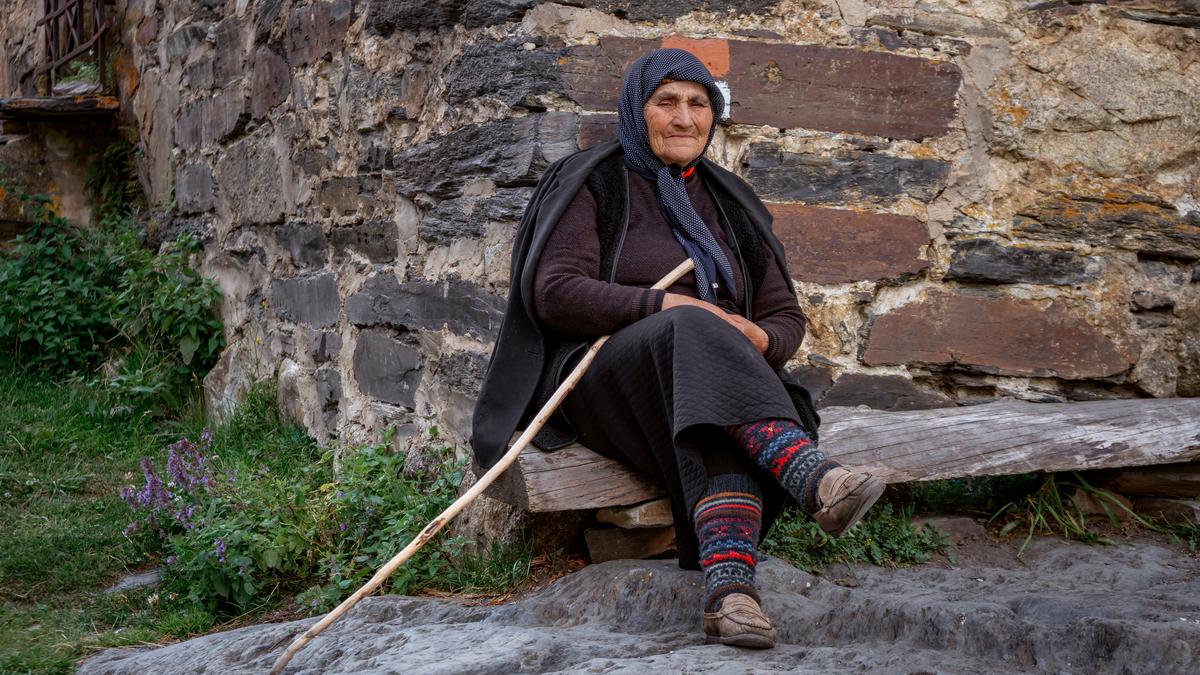
National character
Among the main features of the Georgian character , first of all , they note hospitality of Georgians. Perhaps there is no more country where noisy and abundant feasts are so popular, with a lot of toasts.
In a large company or at a meeting of two or three people, emotionality often manifests itself. Georgians actively gesticulate, speak loudly, especially when discussing important news.
Residents of the country are interested in politics, like to discuss the latest events. Again, loudly and emotionally.
Generosity. Georgians are always ready to help, to share what they have.
And at the same time, among the features of the national character is called secrecy. This cannot be called insincerity, but rather a kind of wisdom. After all, you can't tell everyone about something personal.
Important character traits of Georgians are also courage, belligerence, love of freedom, pride, respect for elders, tolerance, wit, resourcefulness, etc.
Language
Georgian language it is part of the Kartvelian language family, widespread in the west of Transcaucasia. It began to form in the II millennium BC
. A large number of local languages and dialects in the regions of Georgia is due to the fragmentation of territories and the isolation of individual tribes in ancient times.
Political circumstances often prevented communication. Often those nationalities who lived in the neighborhood created a common language or knew local dialects.
Gradually, a single state and the Georgian language were formed. But local dialects are also preserved, they have slight differences from the state language.
The Iberian dialect belongs to the Georgian group. The Megrelo-Lazian and Svan groups are separated into independent languages.
Settlement of Georgians around the world
The territory of Georgia It is located between the Black and Caspian Seas. The main part of Georgians and other Ibero-Caucasian nationalities are settled here.
Despite the difficulties of recent years, Georgians have retained their statehood.
There are Georgian diasporas in Turkey, Iran, Azerbaijan, Russia and other countries. The modern Georgian language is spoken by about 4.2 million people in the world.
The resettlement of Georgians did not always happen voluntarily. During the conquest by the Persians, part of the country's population was forcibly converted to Islam and transferred to the territory of the Persian Peninsula. They were called Ferendais. You can read more about this in a note on the website Madloba. They went through a difficult path of formation in another country and mentality, but managed to preserve the basic traditions of their own people.
A nation is not only a single territory, politics, economy; it is unity and loyalty to traditions. Georgians do not forget their history, are proud of the past of their beloved country, honor traditions and have a sense of national dignity.


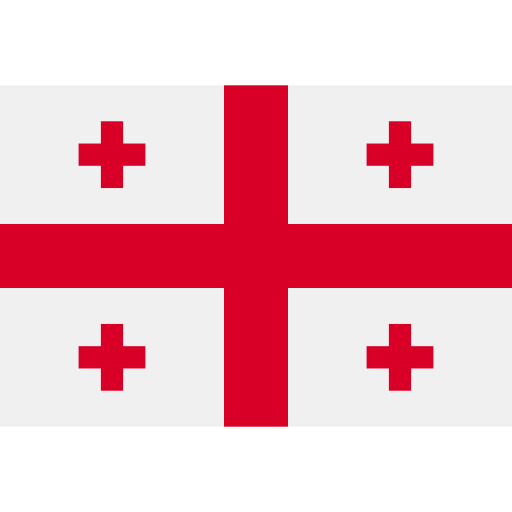

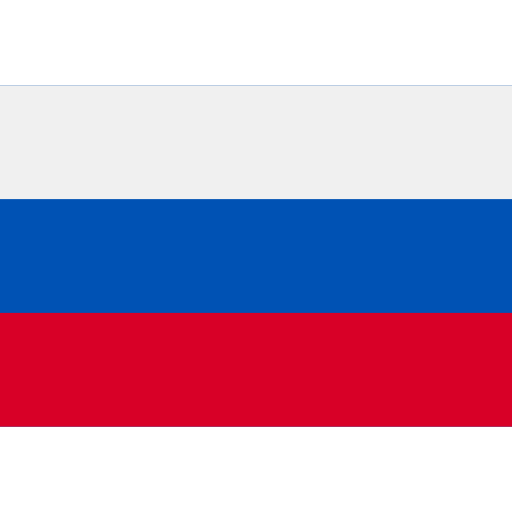







16 comments
Log in to leave a comment